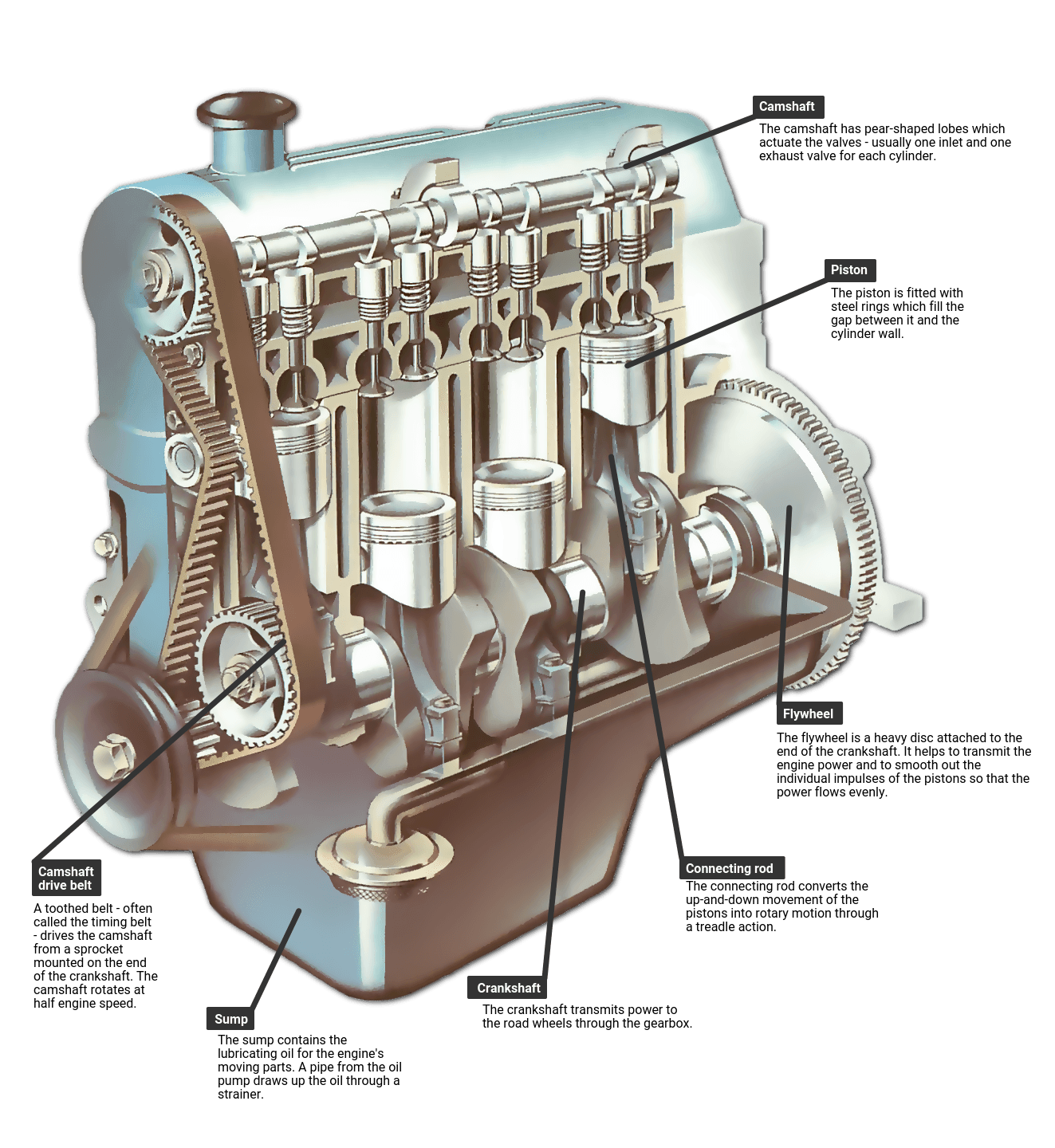Discover Sturdy and Reliable Products from Engines For Africa
Discover Sturdy and Reliable Products from Engines For Africa
Blog Article
A Total Guide to Picking the Right Engine for Your Job
Choosing the appropriate engine for your project is an essential decision that can dramatically influence its overall success. Each of these components plays an essential function in ensuring that your selected engine not only meets instant objectives but also lines up with long-term goals.
Specify Your Project Demands
Defining your task requires is an essential step in selecting the suitable engine for effective implementation. An extensive understanding of your project's purposes will certainly direct you in recognizing the abilities and functions required from an engine. Begin by laying out the scope of your job, consisting of the wanted functionality, target audience, and the specific results you aim to attain.
Following, think about the technical needs that align with your task goals. This consists of reviewing the compatibility of the engine with existing systems, as well as the programs languages and frameworks that will be utilized. Furthermore, assess the degree of scalability needed to accommodate future development or modifications in need.
Budget restrictions additionally play an essential function in specifying your project requires. Establish a clear economic framework to guide your decision-making procedure, guaranteeing that the engine chosen fits within your budget while giving the essential performance.
Evaluate Efficiency Requirements

Next, take into consideration the scalability of the engine. Analyze whether it can manage increased work as your task expands. Engines that sustain straight scaling are typically more effective for larger applications. Additionally, examine the engine's efficiency under various conditions, such as peak use situations, to ensure it fulfills your reliability criteria.
Consider Simplicity of Usage
While technological specifications are vital, the simplicity of use of an engine can substantially affect the advancement procedure and overall project success. An user-friendly interface, clear paperwork, and structured process can drastically lower the discovering curve for developers, enabling them to concentrate on creativity and analytical instead of coming to grips with complicated tools.
When reviewing an engine's convenience of use, consider the onboarding experience. A well-structured introduction, full with tutorials and example tasks, can promote a smoother change for new users. Furthermore, the clarity and comprehensiveness of the engine's paperwork play an essential function; extensive overviews and API references can encourage designers to fix and carry out features successfully.
One more facet to consider is the engine's modification abilities. An engine that permits easy modifications can be a lot more home user-friendly, as developers can customize it to fit their details needs without considerable problem. Analyze the process combination with devices and systems you already utilize. A cohesive ecosystem can improve productivity and reduce friction throughout the advancement procedure. Eventually, picking an engine that focuses on ease of use can cause a more satisfying and effective development experience.
Assess Community and Support
The stamina of an engine's community and assistance network can substantially affect a programmer's experience and success. A vibrant area frequently indicates a wealth of shared knowledge, resources, and repairing assistance that can enhance your task's growth process. When examining an engine, think about the size and task degree of its area. Bigger neighborhoods generally use more discussion forums, tutorials, and third-party plugins, making it possible for designers to discover options much more efficiently.
Furthermore, review the accessibility of official assistance channels. Reliable documents, responsive customer assistance, and regular updates are important for attending to technical issues and maintaining your project on course. Engines For Africa. Active communities likewise foster collaboration, providing possibilities for networking and comments, which can be indispensable, specifically for independent designers or tiny teams
In addition, check out the existence of community-run occasions, such as meetups or hackathons. These events can enrich your understanding of the engine while linking you with experienced users and prospective partners. In summary, a robust area and assistance system not just improve growth but likewise develop an environment for learning and advancement, inevitably boosting the likelihood of your job's success.
Contrast Price and Licensing Alternatives
Spending plan considerations play an blog essential role in choosing the ideal engine for your task, as the cost and licensing options can considerably affect both short-term costs and lasting feasibility. Engines For Africa. Various engines supply varying rates frameworks, which can include one-time acquisition charges, registration models, or revenue-sharing arrangements based upon your project's profits

Accrediting options likewise vary substantially. Some engines are open-source, using adaptability and community-driven assistance, while others may require exclusive licenses that restrict use and circulation. Comprehending the ramifications of each licensing version is essential, as it influences possession legal rights, future scalability, and potential lawful commitments.
Final Thought
In final thought, selecting the proper engine for a job necessitates an extensive assessment of specified job needs, efficiency demands, convenience of usage, community assistance, and expense considerations. By systematically addressing these important elements, decision-makers can make certain placement with both future and existing job demands. A knowledgeable choice eventually enhances the likelihood of task success, allowing effective source allocation and making the most of prospective outcomes within the defined budgetary restraints.
Selecting the ideal engine for your project is a critical decision that pop over to this site can dramatically impact its general success.Defining your job requires is an important action in selecting the proper engine for effective implementation. An extensive understanding of your task's objectives will lead you in determining the capacities and features called for from an engine.Once you have a clear understanding of your job requires, the following action is to evaluate the performance demands of the engine.In verdict, selecting the appropriate engine for a task demands a comprehensive analysis of defined project requirements, performance demands, convenience of usage, community support, and expense factors to consider.
Report this page